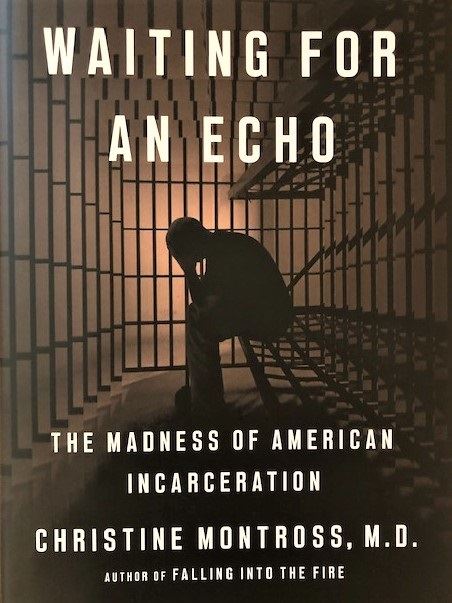 Founded in 1980 |
|
| Montross, MD. , Christine , Waiting for an Echo: The Madness of American Incarceration. New York, Penguin Press, 2020. ISBN 9781594205972. |
Reviewer: Alan J. Lippman, MD |
The American penal system is complex, costly, and frustrating. Nearly 2.3 million people are currently incarcerated, distributed among some 2,000 federal and state prisons, 1,800 juvenile correctional facilities, 3,000 local jails, more than 200 immigration detention facilities, and other assorted institutions, including psychiatric hospitals. The spectrum of offenses is vast, including violent crimes, property theft, and civil offenses. Today, nearly twenty percent of inmates are confined for drug offenses. At least one in four people who go to jail are subsequently re-arrested. Common determinants in this population include poverty, mental illness, and substance use disorder—and many of these problems only worsen with incarceration.1 Christine Montross, a forensic psychiatrist, award-winning poet, and author of two other introspective books, here indicts the American criminal justice system itself as ineffective and cruel. From a personal and intimate perspective, she examines how our system of corrections actually can make those with mental illness worse; moreover, it has the potential to contribute to mental instability of those who are otherwise well. The book is divided into three parts. In the first section, “Our Prisoners,” Montross describes in arresting detail a multitude of personal experiences from among her professional dealings with a variety of individuals caught up in the web of correctional strategies. In the second, “Our Prisons,” she focuses on the methodologies, ostensibly employed to accomplish rehabilitation, that in actuality work counterproductively and serve to contribute to further mental instability. Finally, in “Our Choice,” the author explores alternative systems, both here and abroad, that may provide a better healing environment and by so doing overcome many of the harmful effects of the current system. Montross’ argument is provocative, yet reasoned. The approach to the problems of mass incarceration is necessarily multifactorial, involving fundamental issues of ethnic and cultural disparities, social and economic discrimination, and mental health.1 Efforts toward their solution will require profound insight and creative imagination. Christine Montross provides an eye-opening look at the mental health aspects that confound meaningful progress. 1. Sawyer, W and Wagner, P, Mass Incarceration: The Whole Pie 2020, Prison Policy Initiative. https://www.prisonpolicy.org/reports/pie2020.html |
